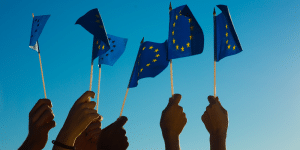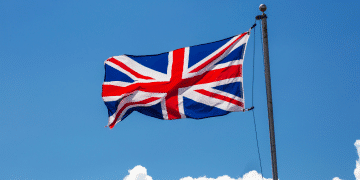EU-China Relations at a Crossroads: Trade Tensions, Political Friction, and a Search for Balance
A Diplomatic Summit Marked by Tension
The relationship between the European Union (EU) and China has reached what many are calling a historic “inflection point.”
During a one-day summit in Beijing, European Commission President Ursula von der Leyen emphasized that although cooperation between the two powers has deepened over recent years, serious imbalances have emerged, particularly in trade.
She urged China to address these disparities while also highlighting that Beijing’s close ties with Russia would be a “determining factor” in shaping the EU’s future approach.
China’s President Xi Jinping, however, called on EU leaders to “properly manage differences”, insisting that Europe’s current challenges “do not come from China.”
Xi stressed the need for dialogue, stating that mutual trust is the foundation of a constructive partnership.
This summit, held at Beijing’s Great Hall of the People, was shortened to just one day at China’s request, raising doubts about the possibility of significant breakthroughs.
Both sides nevertheless presented the meeting as an opportunity to “rebalance” their relationship, even if expectations remained modest.

Key Points of Contention: Trade Deficit and Tariffs
One of the primary issues dominating discussions was the EU’s growing trade deficit with China, which reached €305.8 billion ($360 billion; £265 billion) in 2024.
This figure has doubled over the last nine years, raising concerns among EU officials about industrial overcapacity, subsidies, and unfair trade practices.
The EU has responded by imposing tariffs on Chinese-made electric vehicles (EVs), citing concerns about price dumping and market saturation.
In return, Beijing has retaliated with tariffs on European goods, including luxury liquor, and has restricted government purchases of EU medical equipment.
These measures have only intensified the trade conflict, with both sides calling for “real solutions” but making little progress toward a compromise.
| 📌 Priority | 📝 Explanation |
|---|---|
| Market Access | Improve access for European companies to operate and invest freely in China. |
| Export Controls | Reduce export restrictions to avoid supply chain disruptions and foster stability. |
| Industrial Overcapacity | Curb excessive production to promote fairer global competition and sustainability. |
Beijing expressed a willingness to collaborate with the EU to “enhance dialogue on export controls,” but stopped short of offering concrete policy changes.
The Russia-Ukraine War: A Geopolitical Flashpoint
Beyond trade, the Russia-Ukraine war remains a significant area of disagreement between China and the European Union.
Von der Leyen and European Council President António Costa pressed Xi to use China’s global influence to “persuade Russia to end its aggression in Ukraine.”
Von der Leyen warned that: How China continues to interact with Putin’s war will be a determining factor for our relations going forward.
This message underscores a deep concern in Brussels that China’s ambiguous stance on the conflict often described as “neutral”—is in reality leaning toward Moscow.
The situation escalated when the EU imposed sanctions on two Chinese banks for allegedly facilitating support to Russia, prompting Beijing to lodge “solemn representations” with EU officials.
Reports have also surfaced claiming that Chinese Foreign Minister Wang Yi told EU foreign policy chief Kaja Kallas that Beijing does not wish to see Russia defeated, as this could shift the strategic balance in favor of the U.S. Such statements have only fueled mistrust between the EU and China.
Strategic Mistrust and Political Symbolism
The summit took place against a backdrop of strained diplomatic gestures.
Xi Jinping’s decision to skip an invitation to Brussels earlier in the year, coupled with his appearance in Moscow for Russia’s World War II Victory Day Parade, signaled a tilt toward Moscow that unsettled European leaders.
Engin Eroglu, chair of the European Parliament’s China delegation, described the relationship as being in “an atmosphere of strategic mistrust,” adding that “the mood is clearly tense—if not frosty.”
EU leaders have sought “frank conversations” with Beijing, but progress has been slow.
While both sides claim to value mutual benefit, the political symbolism of recent events has highlighted a widening gap in trust.
Industrial Competition and Rare Earths
China’s dominance in rare earth elements and critical minerals resources vital to modern industries like electric vehicles, renewable energy, and defense remains a major source of EU frustration.
Von der Leyen has accused Beijing of weaponizing its “quasi-monopoly” to stifle competition in key sectors.
In 2024, Beijing tightened export controls on these critical materials, following the EU’s decision to impose restrictions on Chinese medical devices.
The EU views these moves as an attempt by China to leverage strategic resources for geopolitical gain, while Beijing argues that it is simply protecting its national interests.
The EU’s Balancing Act
European nations find themselves in a delicate position.
On one hand, the EU recognizes China as a vital trading partner and a potential collaborator when responding to major global challenges such as climate change and supply chain resilience.
On the other hand, it sees China as an economic competitor and, increasingly, as a systemic rival a narrative Beijing strongly rejects.
In an interview with Chinese state-linked outlet The Paper, China’s ambassador to the EU, Cai Run, criticized this threefold positioning:
The EU’s threefold positioning of China is like a traffic light showing green, amber, and red all at once. It fails to direct traffic and only creates confusion and obstacles.
Calls for Mutual Trust and Dialogue
During the summit, Xi Jinping urged the EU to avoid “decoupling” strategies, warning that building barriers and severing supply chains will only lead to self-isolation.
He emphasized that “boosting competitiveness” should come through innovation and openness, not protectionism.
Von der Leyen, however, maintained that the EU must defend its industries and push for fairer trade practices. She stressed the need for “reciprocal access” to markets and clearer rules of engagement.
The Road Ahead: Can Cooperation Prevail?
Despite the challenges, both sides acknowledged that EU-China relations are too significant to allow a complete breakdown.
Von der Leyen expressed hope that the summit could “define the next 50 years” of bilateral ties, emphasizing that cooperation on technology, climate policy, and sustainable trade remains crucial.
Chinese officials, for their part, described the relationship as being at a “critical juncture of building on past achievements and opening a new chapter.”
Conclusion: A Fragile Partnership in Transition
The EU-China relationship is undergoing a complex and delicate transformation.
Trade imbalances, geopolitical tensions over Russia, and disputes about market access have created a climate of strategic mistrust.
Yet, both parties recognize the enormous benefits of maintaining dialogue and collaboration.
Going forward, the success of this relationship will hinge on finding common ground in areas like climate action, green technology, and digital trade, while also addressing contentious issues like subsidies, industrial overcapacity, and political alignment.
Ultimately, this summit may be remembered not for any dramatic breakthroughs, but for setting the stage for a more pragmatic and transparent dialogue between two of the world’s most influential economic blocs.





